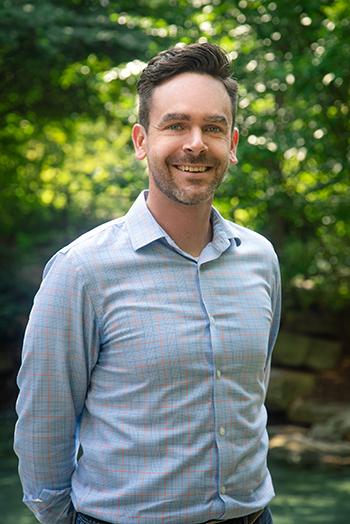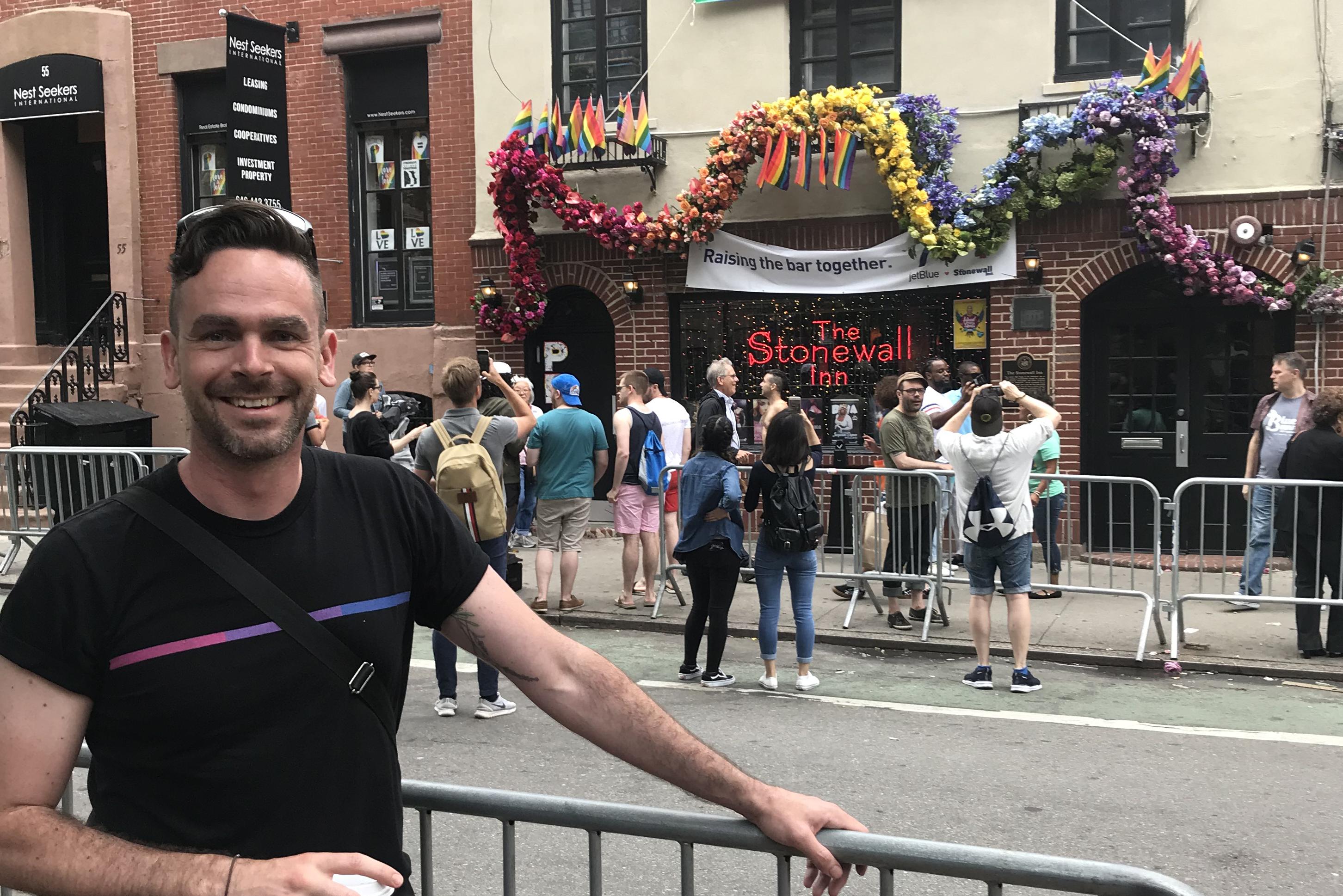Dr. Sullivan on Bringing Queer Philosophy into Academia and Everyday Life

When one thinks about philosophy, the classical schools of ancient Greece or China may be the first to come to mind. A more contemporary but lesser-known discipline, queer philosophy, is one Dr. Ian M. Sullivan, assistant professor of Philosophy, uses to interpret philosophical texts from around the world, such as the Daodejing and the Bhagavad Gita. Through queer philosophy, Dr. Sullivan gains an alternative framework to explore classical philosophical writings.
“Queer studies itself didn’t emerge until 1990 or so,” said Dr. Sullivan. “It emerged out of Gay & Lesbian studies as something different in nature to the more identitarian approaches to the LGBTQ+ community.”
Dr. Sullivan’s research focuses on cross-cultural and interdisciplinary examinations of contemporary LGBTQ+ life, including the politics of shame and Confucian morality, queer feminist methodologies, and Daoist articulations of bisexual and nonbinary life. Dr. Sullivan joined the University in August as the only full-time professor of Philosophy, and has since taught courses on Asian philosophy, ethics, and the philosophy of social justice. Each class tackles questions surrounding goodness, justness, rightness, and the variety of ways in which we can live better.
The history of queer philosophy, and queer studies more broadly, is an ongoing developing field in academia. One of the social norms which queer theory explores is heteronormativity, or the notion that heterosexuality is inherently the default and that homosexuality is unnatural or at least abnormal. In particular, Dr. Sullivan explores queer issues through the intersections of gender and sexuality not on the basis of “gay” versus “straight,” but rather what is considered “normative” or “deviant,” and how these social norms are constructed.
One of the ways that heteronormativity can manifest in our everyday lives is how homosexuality is framed by modern societal institutions. Dr. Sullivan notes that this largely began with the rise of Western medicine and psychology, which labeled homosexuality as a mental condition.
“The term for it is the personification of homosexuality,” said Dr. Sullivan, explaining the shifting attitudes toward same-sex desire over time. “You get the change from sodomy laws, which are about actions, to the homosexual who is an essence, an identity, a member of a particular category of being, who is a problem and needs to be corrected or imprisoned.”
This manner of heteronormative thinking was imported to countries around the world during Western imperialism and colonialism. While the United States and other Western nations are seen as global leaders in LGBTQ+ rights, the existence of laws that criminalize homosexuality in former colonies are often relics from their oppressors, such as the now-overturned sodomy law in India’s penal code, leftover from the British colonial occupation.

Dr. Sullivan outside of the Stonewall Inn, a popular gay club in Greenwich Village where members of the New York City LGBT+ community rose against unjust police attacks in 1969.
“If you look at the history of how queer bodies and queer persons have been treated in academic scholarship and medical practice, cissexist and heteronormative ideals are built into many of the core concepts and the ways of thinking,” said Dr. Sullivan, explaining how the movement for LGBTQ+ equality expands beyond legal recognition for the community. “It is no wonder then that these authorities would see us as abnormal, deviant, problematic, and not fit.”
Another norm that queer theory examines is the gender binary, or the belief that one’s assigned sex will align with one’s gender identity, and therefore the stereotypical social constructs of masculinity and femininity. This pervasive notion influences not just the ways we perceive gender identity, but also how it is seen by healthcare and legal systems. For those who are transgender, meaning those whose gender identity does not “align” with their assigned sex, and those who are nonbinary, meaning those whose gender identity does not fall in the binary classes of “man” or “woman,” accessing life-changing and gender-affirming procedures such as changing their legal name or receiving hormones can be inaccessible due to lack of support within the system or inaffordability.
According to Dr. Sullivan, an important step for queer philosophers, LGBTQ+ community members, and their allies, is engaging in reflective critique while breaking down Western notions of heteronormativity and strict gender binaries.
“It takes a lot of attention, introspection, and relationship-building—energy needs to be budgeted if you want to be that kind of community,” said Dr. Sullivan. “You don’t follow contestants of Ru Paul’s Drag Race on Instagram, and suddenly you’re a social justice warrior. We have to look at the various intersections of race, ethnicity, culture, class, and dis/ability. I think as a community, we need to be more conscious that we all have a lot of learning to do, but also, that such an effort will be enormously rewarding for all of us.”


